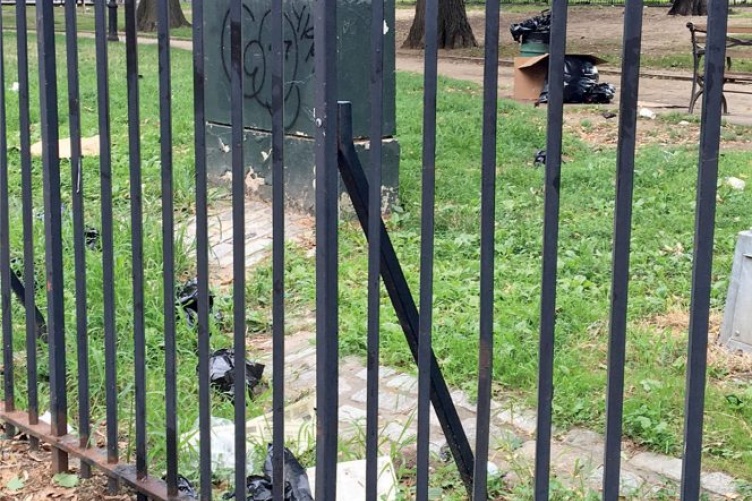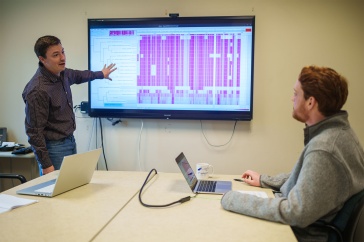
Each year, Americans use more than 100 billion plastic bags, most of which are thrown away and end up in landfills or on the side of the road. As a result, local, state, and national governments are working to reduce plastic bag waste, with approaches ranging from supporting recycling efforts and using compostable bags to levying taxes and outright banning the use of plastic bags.
New research conducted by the University of New Hampshire has found that while all polices aimed at reducing plastic bag waste had their pros and cons, reducing plastic bag usage was most successful when taxes on bags were high enough to trigger a behavior change. New Hampshire Agricultural Experiment Station researcher John Halstead, professor of environmental and resource economics, and Megan McLaughlin, assistant town planner in Old Orchard Beach, Maine, and a UNH graduate of the resource administration and management program, present their findings in “The Ubiquitous Plastic Bag – And What to Do” in BioCycle.
“Each policy measure has advantages and disadvantages. Fees had a mostly desired effect on plastic bag usage. A tax on bags needs to be set high enough that consumers will change their behavior,” the researchers said.
“If the goal is to get rid of plastic bags completely from the environment, a ban works the best. A take-back/recycling program needs to be accompanied with an education program to make it a habit for consumers,” they said.
Halstead and McLaughlin studied U.S. communities that have taken plastic bag action, examining motivating factors, whether it was a local or a state effort, if there was a vote involved, and patterns between communities. Communities studied include Austin, TX, Portland, OR, the state of Hawaii, Westport, CT, and Alameda County, CA that instituted bans; the state of Delaware, state of Rhode Island, Phoenix, AZ, and Brooklyn, NY that started plastic bag take-back/recycling programs; and Washington, DC, Portland, ME, Breckenridge, CO, and Montgomery County, MD, that implemented plastic bag taxes.
The researchers found that once a 5-cent-per-bag tax on plastic bags was levied in Washington, DC, it generated nearly $2 million in revenue, which has been allocated toward environmental and other social issues. In Portland, reusable bag sales increased 350 percent at one major grocery chain. Other Maine cities are moving towards plastic bag legislation as a result. In Breckenridge, a 40 percent reduction in bags was seen the first year after the tax on plastic bags took effect.
“Looking at the results and drawing comparisons between communities, bans on plastic bags have the potential to work, but may offer loopholes that harm the environment. For instance, in Austin and Honolulu, banning plastic bags of certain thicknesses resulted in higher usage of heavier plastic bags, and these, which found their way into the waste stream,” the researchers found.
“Take-back programs had similar mixed results. A key component to the success of these programs is outreach; more effort to get competing retail, grocery, and pharmaceutical chains on board helps increase recycling habits by the consumer as these businesses are major distributers of plastic bags,” they found.
This material is based upon work supported by the NH Agricultural Experiment Station, through joint funding of the National Institute of Food and Agriculture, U.S. Department of Agriculture, under award number 233237, and the state of New Hampshire.
Founded in 1887, the NH Agricultural Experiment Station at the UNH College of Life Sciences and Agriculture is UNH’s original research center and an elemental component of New Hampshire's land-grant university heritage and mission. We steward federal and state funding, including support from the USDA National Institute of Food and Agriculture, to provide unbiased and objective research concerning diverse aspects of sustainable agriculture and foods, aquaculture, forest management, and related wildlife, natural resources and rural community topics. We maintain the Woodman and Kingman agronomy and horticultural farms, the Macfarlane Greenhouses, the Fairchild Dairy Teaching and Research Center, and the Organic Dairy Research Farm. Additional properties also provide forage, forests and woodlands in direct support to research, teaching, and outreach.
-
Written By:
Lori Tyler Gula, PhD | NH Agricultural Experiment Station | lori.gula@unh.edu | 603-862-1452

















































